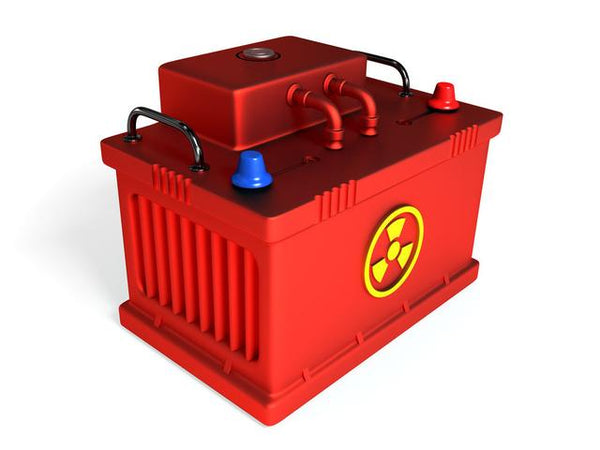Nuclear battery, also known as isotope battery, is a device that uses radioisotope decay to release energy-carrying particles (such as alpha particles, beta particles and gamma rays) and convert their energy into electrical energy. According to the level of voltage provided, nuclear batteries can be divided into high-voltage type (a few hundred to several thousand V) and low-voltage type (about tens of mV1V). According to the energy conversion mechanism, it can be divided into direct conversion and indirect conversion.
More specifically, it includes direct rechargeable nuclear batteries, gas ionization nuclear batteries, radiant volt effect energy conversion nuclear batteries, phosphor photoelectric nuclear batteries, thermal photoelectric nuclear batteries, thermoelectric nuclear batteries, and thermionic emission nuclear batteries. Batteries, electromagnetic radiation energy conversion nuclear batteries and heat-mechanical conversion nuclear batteries, etc. Among them, the direct rechargeable nuclear battery and the gas ionization nuclear battery belong to the direct conversion type and are less used. At present, the most widely used are thermoelectric nuclear batteries and heat-mechanical conversion nuclear batteries. Substantial progress in nuclear batteries began in the 1950s. Because of their small size, light weight and long life, their energy and speed are not affected by the temperature, chemical reaction, pressure, electromagnetic field, etc. of the external environment. , It can work in a wide temperature range and harsh environment.
Difficulties in the promotion of nuclear batteries
1. If there is radioactive contamination, it must be properly protected; and once the battery is installed, whether it is used or not, the electrical performance will decline as the radioactive source decays.
2. The cost of nuclear batteries is expensive.
3. The energy conversion rate is not high.
4. Shielding of nuclear batteries for civilian use
The nuclear batteries currently in use are all alpha and beta decay nuclides, and their particle ranges are relatively short and shielded. There is no need to worry about radiation during normal use. However, considering the various uncertainties in civilian use, nuclear There are still relatively great difficulties in battery civilian use.
Related accidents caused by nuclear batteries
During the Cold War, the U.S. government often manufactured plutonium nuclear batteries that could last for decades. Over the years, dozens of nuclear batteries have been built to power satellites, planetary probes, and spy devices. However, accidents have also occurred that released harmful substances. And the world.
In 1964, a navigation satellite carrier rocket failed, causing the plutonium nuclear battery on the satellite to explode. The radioactive material released was scattered all over the world, which caused concern about the application of plutonium.
In 1965, a US intelligence team in the Himalayas lost a device that used plutonium to detect China under a blizzard.
In 1968, an out-of-orbit weather satellite fell into the Pacific Ocean. Fortunately, federal investigators retrieved a complete nuclear battery off California.
In 1997, when NASA was preparing to launch the Cassini Saturn probe, hundreds of demonstrators were present in protest, pointing out that in the event of an accident, the probe’s nuclear battery might burst, eventually causing thousands of people to suffer from cancer. And die. Authorities’ experts now point out that the latest plutonium nuclear battery can better prevent rupture and reduce the chance of harm to humans to an extremely low level.
JUNLEE Group is an integrated full power energy factory that specializes in Uninterruptible Power Supply (UPS), Lead-Acid Battery, Battery pack, EV battery, Energy Storage Battery, Energy storage power station, Power pack Gel battery, PV Inverter and Solar system.
Production capacity reach 200000 KVaH per month. Products apply to Electric vehicles,electric mobility, solar & wind energy storage system, UPS, backup power, telecommunication, medical equipment and lighting.
JUNLEE sets up "Power research center" with more High-tech products.More than 100 engineers provided in-time and efficient one-stop solutions.
They mission strives to bring green power to the world.
To learn more about Li-ion batteries, please refer to https://www.junleepower.com/

